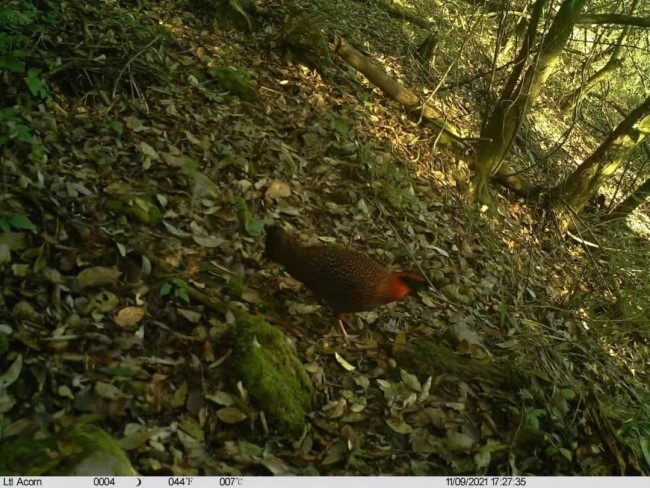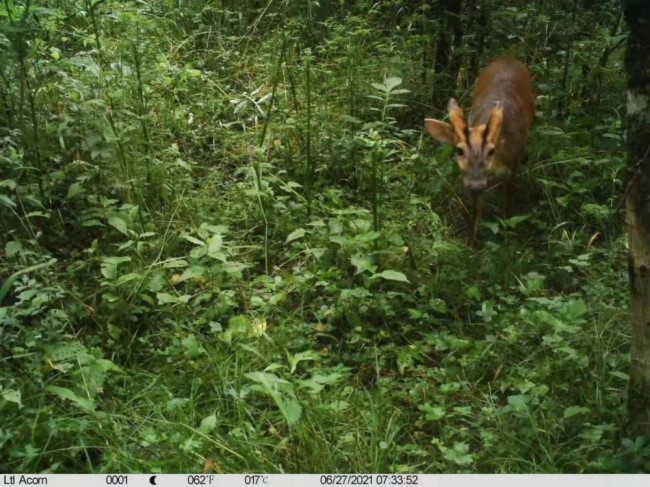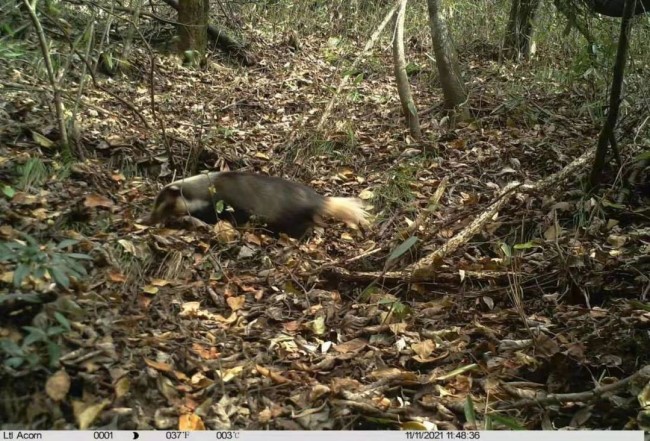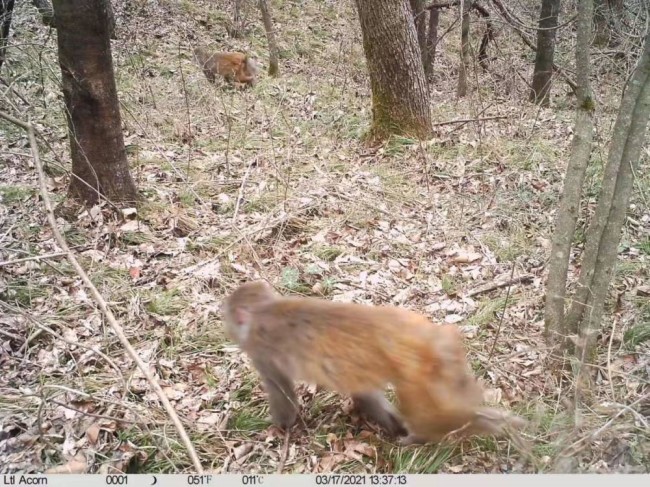Rare wildlife spotted in SW China's Sichuan province
Automatic infrared cameras in Micang Mountain National Nature Reserve, Southwest China's Sichuan province, have captured images of over 20 species of rare wild animals, such as crimson horned pheasants, serows, tufted deer and Tibetan macaque monkeys.

A crimson horned pheasant, a national second-class protected species, is spotted in Micang Mountain National Nature Reserve, Southwest China's Sichuan province. [Photo/cbgc.scol.com]
According to Feng Xuewu, head of a wildlife protection site in the reserve, five infrared cameras were set up in several places to learn more about the animals’ daily activities and better protect them. Many were seen either looking for food or chasing after their mates.

A tufted deer wanders in the woods of Micang Mountain National Nature Reserve, Southwest China's Sichuan province. [Photo/cbgc.scol.com]
Feng said these photos and video clips have provided valuable data on the animals’ population, lifestyle, habitation and distribution.The reserve, located in Wangcang county, Guangyuan in Sichuan, covers an area of 23,400 hectares. It exists as part of the Qinling Mountains-Daba Mountains, being an integral part of the natural boundary between north and south China.

A hog-nosed badger lies on the gound in Micang Mountain National Nature Reserve, Southwest China's Sichuan province. [Photo/cbgc.scol.com]
The reserve was elevated to a national-level wildlife protection site in February 2006. It is home to nearly one-third of national key rare wildlife in Sichuan.

Tibetan macaque monkeys, a national second-class protected species, chase after each other in Micang Mountain National Nature Reserve, Southwest China's Sichuan province. [Photo/cbgc.scol.com]
The reserve said it will keep using infrared cameras to strengthen surveillance of wild animals in the future.
